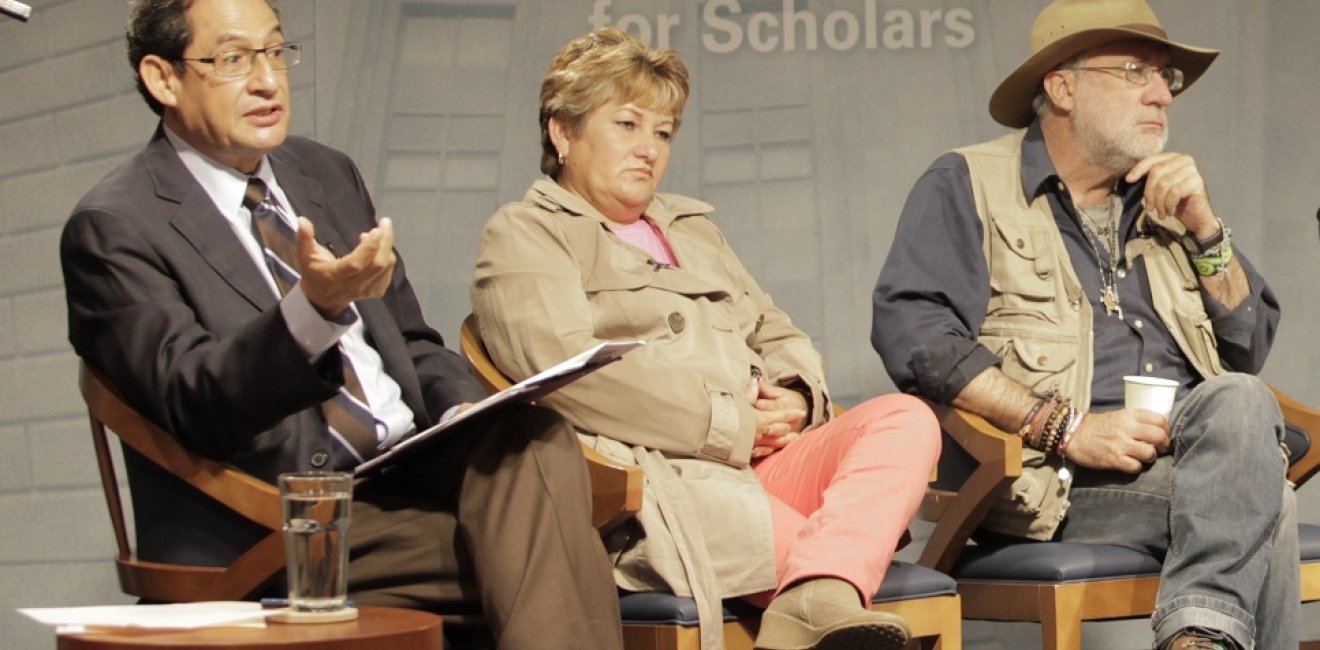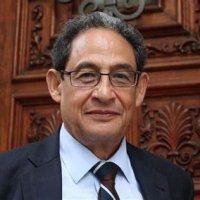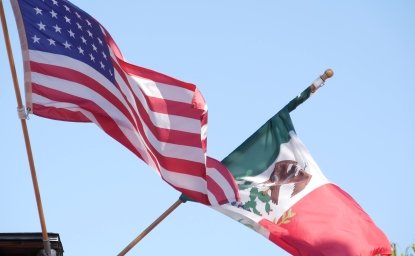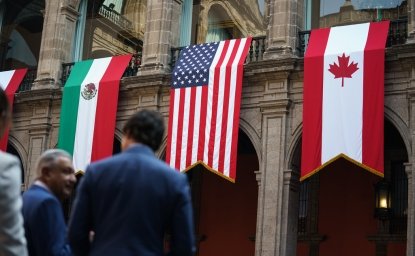On September 11th the Mexico Institute welcomed members of the Caravan for Peace and Justice with Dignity to talk about the human dimensions of Mexico’s violence. The founder of the movement, poet Javier Sicilia, victims Aracely Rodriguez and Maria Herrera, Professor Sergio Aguayo, WOLA Executive Director Joy Olson and the Mexico Institute's Associate Director Eric L. Olson spoke. Professor Sergio Aguayo is a member of the Mexico Institute’s Advisory Board and a Professor at El Colegio de Mexico, he kindly sent us his written remarks in English to share with interested readers.
During the past month I have read colleagues opinions that underestimate or minimize the Caravan for Peace by finding it naïve or unsophisticated. There are also optimistic visions that describe the Caravan as the dawn of a new inspiring era, using the same phrase—perhaps without knowing it—that was uttered by Lincoln Stephens in 1919 after visiting the then newly born Soviet Union: “I have seen the future and it works.”
The Caravan is not irrelevant nor is it a watershed moment. During the past month the Caravan has sown seeds along the path that other Latin Americans opened decades ago.
I accompanied the Caravan in its first days. I was in Tijuana, San Diego, and Los Angeles. When I returned to Mexico City someone sent me a question: why be so involved if you are not a victim, if you’re not part of this brotherhood of suffering? I responded with an obvious answer but the question helped me organize my ideas and feelings, my convictions and aspirations.
I accompanied and supported this Caravan because I have lived very close to two wars and for a personal reason that I will mention when, in a few minutes, I finish my presentation.
The first war I experienced was the Dirty War of the 1960s and 1970s. I am part of a generation that rebelled against authoritarianism; some rebelled by taking up arms, and others –myself included-- took the peaceful route. The human cost and suffering was enormous.
But the most terrible consequence was the silence and the powerlessness. In those years there were very few—in Mexico and abroad—who cared about human rights violations or electoral fraud. In Mexico human rights were seen as an instrument of imperialism; in the United States they turned their gaze toward infinity so as not to see what was going on in their neighbor’s house.
We ended up defeating the skepticism. The unity of the victims and the work of academics, journalists, and officials transformed the cultural paradigms in Mexico and the United States. More and more people accepted that in Mexico there were grave human rights violations, and this background legitimizes the informational work that the Caravan is conducting regarding what is happening in Mexico.
My second experience with wars came with the Central American conflicts. During the 1980s I combined research, journalistic dissemination, and humanitarian work in Chiapas and in the Central American countries. Simultaneously I involved myself in Washington with the mobilizations and debates about these wars, and I came to understand the importance of societies uniting in defense of the most basic rights.
A couple of clarifications. I arrived in 1975 at the School of Advanced International Studies at Johns Hopkins University to study for my doctorate and I was present when relations between Latin American and the United States intensified. This was a qualitatively different dialogue. There were always very strong relations between the conservative sectors of the hemisphere; but in the 1970s and 1980s for the first time a long-term understanding between those of us who favored change was established.
That period left useful lessons for contextualizing the Caravan for Peace. Solidarity is elusive. To achieve it, one must be armed with dedication, intelligence, and patience. Complexity is inevitable because this process is about reconciling ideologies, nationalities, gender, special interests, bureaucratic inertia, and political culture. The forces that weave groups together and pull them apart always oscillate between agreement over very basic principles and haggling over strategies and practices.
This creative tension is exemplified by one of the most symbolic events of the 1980s: the wedding of Melinda Rorick, an American committed to change in Central America, and Francisco Altschul, a Salvadoran who represented the FDR-FMLN. That day, at a mansion in Virginia, all of liberal and progressive Washington was present. The most symbolic part of the event was that it was held in the house of James Monroe, the president that wrote the Monroe Doctrine, one of the most arrogant and unilateral documents in the history of the hemisphere.
The crowd celebrated while discussing the strategies, methods, and projects with great intensity. There was, of course, a great diversity between the Committee in Solidarity with the People of El Salvador, the Sanctuary Movement, and WOLA. The tensions within the FDR-FMLN or between the diligent representatives of theURNG (Guatemala) do not even need to be mentioned.
What was it that kept these coalitions united and allowed them to shift American foreign policy, creating an opportunity for change? Why did they succeed? Thinking about these years, the main reason was that their principal bond was humanitarian. Everyone was united by the desire to stop the aggression against human dignity committed by Somoza, the Guatemalan military, and the Salvadoran far-right.
Theoretical formulations were useful but our unity came from our commitment to life. This basic dedication allowed us to get our point across to a good portion of the public, congressmen and the foreign policy “establishment.” The message was simple: the United States could not preach respect for human rights while it financed death squads or tolerated safe-havens for perpetrators of human rights violations.
This is the same message that the Caravan for Peace is bringing as it comes knocking on the door of Washington: Mexico is living through an unbearable humanitarian tragedy and is governed by elites incapable of protecting us because they are prisoners of special interest groups. Impunity, cynicism, and corruption push us to look for understanding and help beyond our borders.
The Felipe Calderón administration has not met its promises to the victims in the Movement for Peace with Justice and Dignity, nor is it capable of creating a functional mechanism to protect threatened journalists and human rights defenders. The government is like a goldfinch: it sings very beautifully but does absolutely nothing. This past Friday the Interior Ministry deceived us again and in protest 24 organizations which defend human rights left a rigged meeting set to create a mechanism to protect endangered journalists and human rights defenders.
To combat our helplessness we need outside support which requires combatting indifference and denial in the United States. Washington has a responsibility to attend to these concerns by recognizing that in my country there are some 60 thousand dead and that there is massive illegal firearms smuggling that arm the legions of hit men that threaten, kidnap, torture, and kill us.
During the past month the Caravan has sown the seeds of dialogue between sectors in both societies. For the seeds to germinate and flower we will have to overcome many obstacles. There are differences between those coming from Mexico and those welcoming us in the United States. Some differences seem and perhaps are insurmountable; others are the result of momentary tensions. To make them manageable we remember always that ours is a pact in favor of life and in favor of human dignity. If we forget this basic principle, we become involuntary accomplices to the executioners.
I’ll finish with two reflections.
On May 8, 2011, I was in Mexico City to welcome the march that Javier Sicilia had organized. 150 thousand people filled the streets of the capital. I was chatting with Miguel Ángel Granados Chapa on a bench in the shade when Daniel Gershenson came towards us so we could greet Javier Sicilia. He first hugged us, then kissed us, and afterwards asked us to walk with him. Miguel Ángel was weak and excused himself. My family joined the March and when we arrived at the Zócalo stage they put me next to the mother of a young girl, just 19 years old, who was first kidnapped then tortured and finally murdered. The mother gave me a picture of her daughter.
The details disturbed me because this family lived just blocks away from my house. We are neighbors. That little girl could have been my daughter who is now pregnant. Every day I contemplate the picture of the assassinated girl and think of the other victims—and of future victims, too. Any Mexican has the potential to enlarge the list of victims of a war that is fueled by the actions and omissions of the United States. A good neighbor worries about those who live near him. The United States is a fickle neighbor. Sometimes it stands in solidarity and other times it is indifferent.
In March of 1941 the Congress of this country approved the Lend-Lease Act to deliver humanitarian and military aid to the allies threated by the Axis. Franklin Delano Roosevelt uttered a sentence that sums up this Act: its cause lay in “helping to put out a fire in your neighbor’s house before your own house caught fire and burned down.”
Washington is not a good neighbor to Mexico. This is what we are coming to say to the establishment of Washington, to those who live inside the Beltway and to American society: help us extinguish the flames before they set you on fire. It is in your interest and national security to do so. As in the Second World War, ignoring the flare-up is suicide; embodying humanitarianism in foreign relations is a sign of wisdom.
Thank you.





